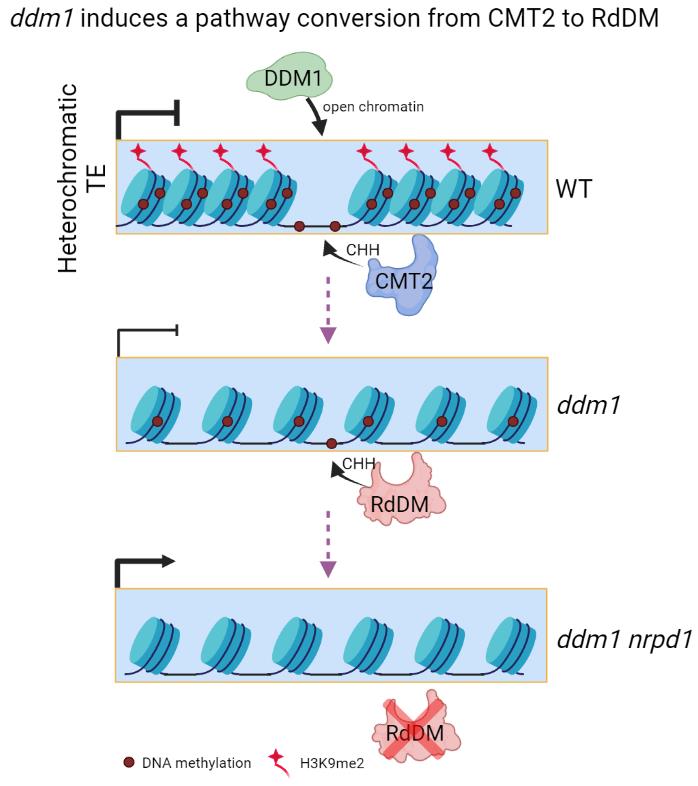A Novel Mechanism Maintaining DNA Methylation and Genome Stability Identified
Scientists at the Shanghai Center for Plant Stress Biology, Center for Excellence in Molecular Plant Sciences of the Chinese Academy of Sciences, have uncovered a novel mechanism that maintains DNA methylation and genome stability in plants. This study was published on August 28th, 2021 in PNAS.
In both mammals and plants, the cytosine bases of the DNA in the genome can be modified by the addition of a methyl group, which is referred to as DNA methylation. The central function of DNA methylation is silencing transposable elements (TEs) integrated in the genome, which when active can jump to new genomic locations, generating mutations and life-threatening genome instability. Although this protective role of DNA methylation is widely accepted, how organisms maintain high levels of DNA methylation on TEs is a long-standing question.
In plants, different DNA methylation pathways cooperatively maintain the DNA methylation status of TEs and ensure that they remain in a silenced state after cell division. Previous findings have led to the general acceptance of a “static” model for the maintenance of DNA methylation, where methylation at a given TE in the genome is maintained by one particular pathway. For example, methylation in the CHH context (where C represents the methylated cytosine and H represents A, C, or T) at the body of long TEs is regulated by the DNA methyltransferase CMT2, whereas the RNA-directed DNA methylation (RdDM) pathway maintains CHH methylation at the edges of long and short TEs.
Li He and collaborators in Prof. Jian-Kang Zhu’s laboratory found that hundreds of genomic loci regulated by CMT2 are converted to RdDM-regulated loci in a ddm1 mutant background, lacking a functional DDM1 chromatin remodeler. Importantly, the authors show that blocking this CMT2-to-RdDM switch leads to the reactivation of TEs and a burst of TE transposition, suggesting that this pathway conversion is essential to ensure the maintenance of TEs in a repressed state and therefore to protect genome stability. Thus, this work not only identifies a novel variant of the RdDM pathway, but also demonstrates that DNA methylation maintenance at a given site is a dynamic and adaptable process, revealing the existence and importance of double-insurance mechanisms for DNA methylation regulation in plants to guarantee genome integrity.
Link to the article: https://www.pnas.org/content/118/35/e2107320118
Contact
Prof. Jian-Kang Zhu
jkzhu@psc.ac.cn
Shanghai Center for Plant Stress Biology, Center for Excellence in Molecular Plant Sciences of the Chinese Academy of Sciences
